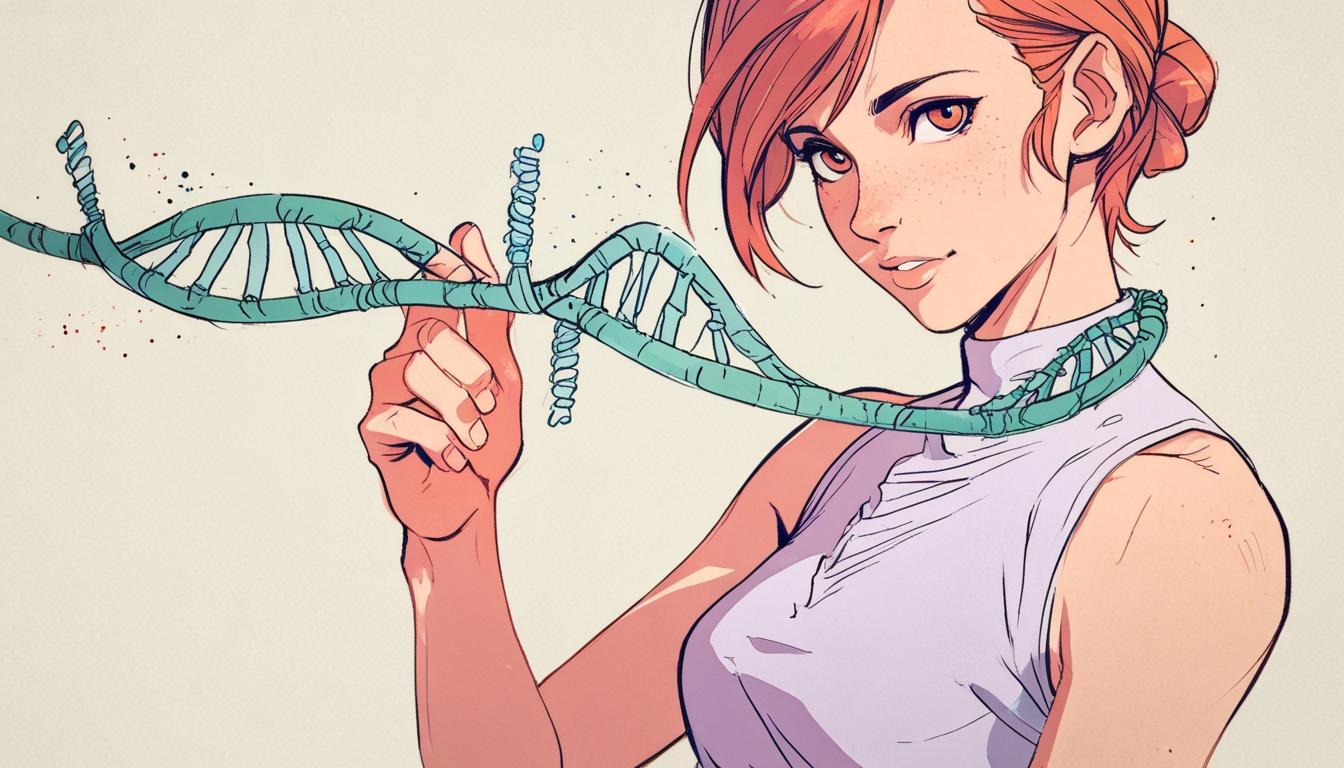Danielle Alexander, a 36-year-old resident of Dundee, has experienced a significant breakthrough in her health journey, thanks to her participation in the 100,000 Genomes Project. This pioneering initiative, aimed at mapping the human genome, provided Danielle with a diagnosis for a rare and complex genetic disorder known as mitochondrial disease, offering her the clarity she had sought for over three decades.
Danielle's journey has been marked by a series of misunderstood health issues. According to her account, she endured numerous misdiagnoses, predominantly being treated for an eating disorder by various mental health professionals throughout her childhood. "I had taken part in the project in 2018, but didn’t hear anything," she remarked. However, a significant change came in August 2021 during a video call with her geneticist. “He looked like he had won the lottery,” she recalled, as he informed her of a new mutation related to mitochondrial disease that had been discovered, which made her the only individual in the database with two copies of the faulty gene.
Mitochondrial diseases are characterized by disruptions in the normal functioning of mitochondria, the energy-producing components of cells. These disorders can severely impact high-energy parts of the body such as the heart, brain, and liver, affecting approximately one in 5,000 individuals. Currently, there is no cure for these conditions.
Danielle's health challenges began at birth when she presented with a hole in her heart, requiring surgery at the tender age of two. As she grew, she struggled with growth and weight issues attributed to Intrauterine Growth Restriction (IUGR), often requiring hospitalization for severe feeding difficulties. Over the years, she was referred to various medical professionals, culminating in her admission to inpatient units for suspected eating disorders. Despite being diagnosed with gastroparesis in 2014 and receiving a PEG tube for feeding, Danielle continued to face numerous challenges and health complications, including extreme fatigue and widespread pain.
The breakthrough in her health came when she learned about the 100,000 Genomes Project on social media, leading her to provide a genetic sample that would eventually be linked to her medical history. The Project, managed by Genomics England, aims to enhance understanding of genetic disorders by linking genomic data to medical conditions.
Danielle expressed great relief upon receiving her diagnosis. “Finally I had got to the bottom of what was wrong with me. The correct diagnosis of mitochondrial disease has enabled me to receive specialist care,” she noted, highlighting the comprehensive medical support she is now receiving, including cardiac reviews.
The role of family has been pivotal in Danielle’s journey. Her mother, Helen Fraser, supported her throughout her struggles, despite facing serious health issues herself, including pulmonary fibrosis that resulted in a double lung transplant. Helen's passing in December 2024 from pneumonia added another layer of complexity to Danielle's life; she is now tasked with caring for her younger sister, Olivia, and brother, Liam.
In the wake of her diagnosis, Danielle is committed to raising awareness about mitochondrial disease. She is currently writing a book to share her experiences and has become involved with the charity My Mito Mission, which aims to provide support and promote research regarding the condition. Her own initiative, dubbed "My Mito Mission" in Dundee, is focused on raising funds to support awareness and research.
Danielle is also active on social media, where she shares information through her dedicated Facebook and Instagram groups. “I want to give hope to others still experiencing a lack of diagnosis. There needs to be better awareness of rare, undiagnosed and genetic conditions – especially from health professionals,” she stated.
While Danielle remains hopeful for the future, she acknowledges the challenges that lie ahead. She expresses gratitude to those who assisted in her diagnostic journey and aspires for the day when a cure or effective treatment for mitochondrial disease may be found.
Source: Noah Wire Services
